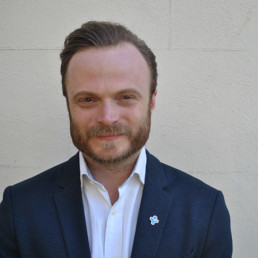
Written by Dominic Arnall
Chief Executive of Just Like Us, the LGBT+ young people's charity.
One in five (17%) teachers in the UK are uncomfortable discussing LGBT+ topics with their pupils, our new research at Just Like Us has found.
It may have been 18 years since Section 28 was repealed in England and Wales but clearly things have not changed as much as we like to think. Growing up LGBT+ is still unacceptably tough, as a result, and huge challenges also remain for LGBT+ school staff who are often afraid to come out in their workplace or to pupils.
Just Like Us’ latest research also found that only a third (29%) of teachers are ‘completely comfortable’ talking about lesbian, gay, bisexual and trans topics in the classroom, despite government guidance of course reinforcing the need to include LGBT+ topics.
We found that primary school teachers are even less comfortable with discussing LGBT+ topics at school, with 19% saying they are uncomfortable and only 25% ‘completely comfortable’, despite OFSTED requiring primary schools to include different types of families – such as same-sex parents – in lessons.
The survey, commissioned by Just Like Us – the LGBT+ young people’s charity – and carried out independently by Teacher Tapp surveyed 6,179 primary and secondary school teachers across the UK. So we know this is sadly not an anomaly.
Why does this matter? Well Just Like Us’ report Growing Up LGBT+ found that having positive messaging about LGBT+ people in schools is linked to all students having better mental health and feeling safer – regardless of whether they’re LGBT+ or not. The evidence is there: LGBT+ inclusion in schools really is beneficial for everyone’s wellbeing.
When so many teachers say they’re uncomfortable discussing LGBT+ topics, such as mentioning that some families have lesbian mums, this has serious knock-on effects for LGBT+ young people’s wellbeing and mental health, who are currently twice as likely to be bullied and have depression. Having silence around LGBT+ topics only results in shame, stigma and students feeling that they don’t belong in school.
We don’t blame teachers for feeling uncomfortable. Some school staff simply may not have had the resources or personal life experiences – but all you need is a willingness to support your pupils and Just Like Us can help provide lesson plans, assemblies, talks and training so that you feel confident discussing LGBT+ topics with your pupils.
It’s also essential that we get the message out that teachers don’t need to be experts on LGBT+ topics to support their LGBT+ pupils.
You also don’t need to be LGBT+. Often we see in schools that this vital inclusion work falls to staff who are LGBT+ themselves rather than all school staff taking on the responsibility of making their school a safe, happy and welcoming place for all of their young people. This work doesn’t need to be done by LGBT+ staff – in fact, how amazing is it for students to see adults in their lives being proactive allies?
One incredible teacher, who is an ally, and a brilliant example of this is Zahara Chowdhury, who teaches at Beaconsfield High and the Beaconsfield School, in Buckinghamshire. She says it’s a “human responsibility” to include LGBT+ topics in the classroom and has been the driving force behind School Diversity Week celebrations at her schools.
It all starts with a willingness to support your students or simply diversify your lessons using our free resources – sign up for School Diversity Week and you’ll get a digital pack of everything you need to kickstart inclusion at your school.
Already doing this work? Let a colleague or fellow educator at another school know by sharing this blog – the more we share resources and reassure staff that you don’t need to be LGBT+ nor an expert, the sooner and better we can ensure all young people feel safer and happier in school.

